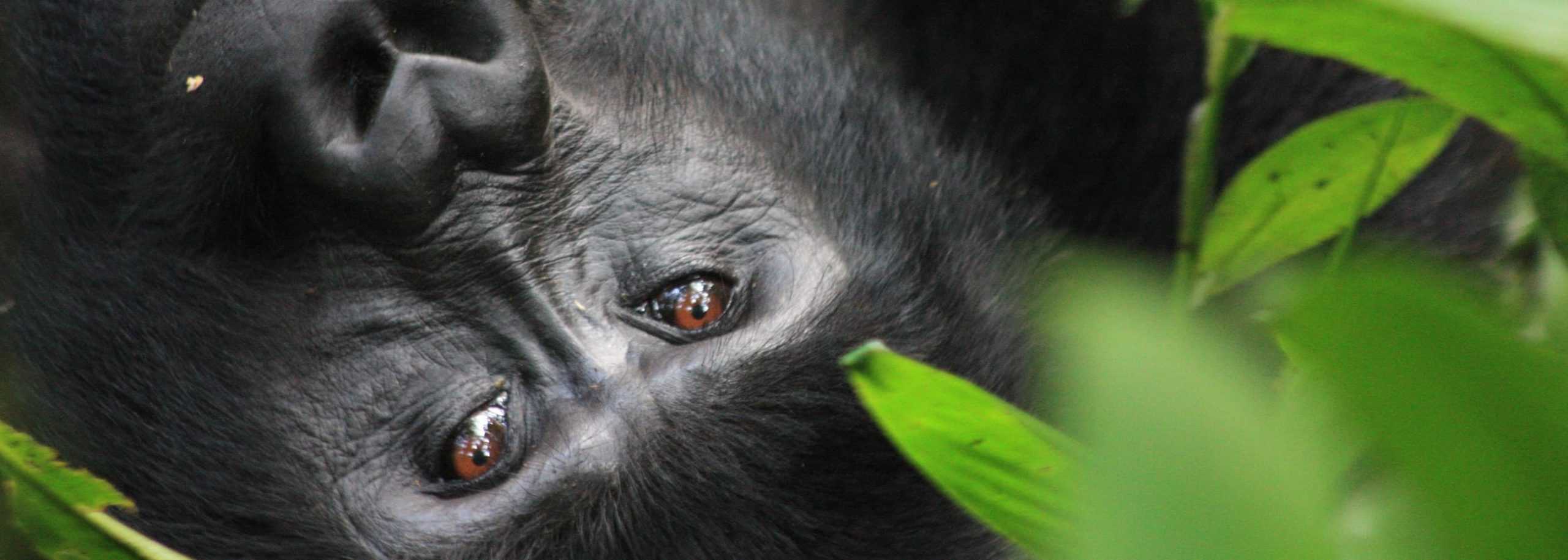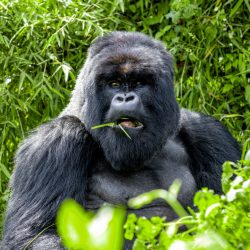The 2010 Mountain Gorilla Census in Virunga Massif: The Camp Experience of team 1 and 2.
Blog | 18/05/10
Monday the 1st of March 2010, the first camp of gorilla trackers was established at Mutura, on the western end of the Virunga Massif on the Rwandan side. The camp was installed on the slopes of Mt. Karisimbi which is dominated by the bamboo vegetation zone.
This camp was installed in the context of carrying out a census of the population of mountain gorillas located in the Virunga massif. The Virunga massif is across 3 countries which are Rwanda, Democratic Republic of Congo and Uganda. To reinforce the trans-boundary collaboration that is existing between the 3 countries, during the census groups of trackers are made of rangers from these different countries’ national parks: Parc National des Volcans (Rwanda), Bwindi Mgahinga Conservation Area (Uganda) and Parc National des Virunga (DRC).
After setting up our tents and having a brief tour around we chilled out and got to know each other before supper was served. Among us, some were French speakers, others English speakers and others are Kinyarwanda- French- Swahili speakers. What was interesting in this mixture of languages was the fact that we developed a mixture of these languages that we nicknamed “gorilla language”. This became the camp tongue which allowed us to easily communicate and so to reach our target of a census of the mountain gorillas of the Virunga Massif.
This particular camp’s experience was not like the camps we read about in nature books. This camp was like our family’s home and was full of people having the hope and the determination of counting individual mountain gorillas. To newcomers, people who are doing a gorilla census for their first time like me, the life in the camp might have seemed overwhelming and difficult in the beginning. This was particularly because of the cold wet weather, but as the time progressed, people got used to it and it was no longer so overwhelming and difficult.
To reach the target of maximizing the number of hours to be worked in the park for the census, we started by thinking about the meals’ timetable and the menu composition. The camp then agreed to have breakfast at 6:30 am, work in the forest all day and then have supper at 7pm. In the beginning, it was not easy for many people who, for the first time in their life had to adapt to this situation. Some cases of stomach aches were observed in the beginning due to the different meal hours. What is good is that all people have adapted to the new meal schedule within 3 days. It was also very interesting to look at old and young men sharing the bathroom constructed from local materials, and discussing around the locally made table, even playing cards in National Teams (but no national anthems were sung before the game!).
Who will forget the brilliant moments we used to have after supper when we gathered in a semi-circle watching Congolese, Rwandese and Ugandan music on Alison’s small flat screen? Nobody I think. Who will ignore the endurance and good advice of Mzee (Old Man) Babo Jean de la Croix? It would be like ignoring the 1 month we spent in the Park for the whole census exercise. How should morning meetings bringing together Team leaders and their assistants be forgotten? It is impossible.
Let’s note tears that have fallen from everybody’s eyes during the time we were concluding our work in the forest. People were exchanging e-mails and telephone numbers and that shows how trackers from Parc National des Volcans, Bwindi Mgahinga Conservation Area and Parc National des Virunga have taken this opportunity to develop and strengthen their collaboration that has generated a kind of friendship. Many thanks to Deogratias, Christopher, Joseph, Alison, Gasore, Babo, Eric, Emmanuel and Felicien with who we’ve been together during whole month in camp.



